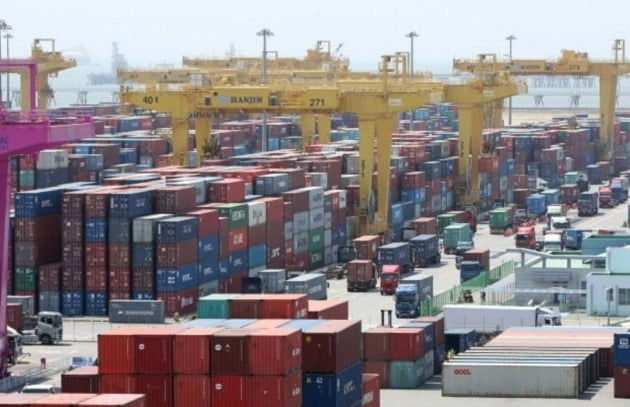
Photo = Hankyung DB
An analysis showed that the added value of the domestic manufacturing industry in 2019, before the novel coronavirus infection (Corona 19), declined compared to the previous year. There are concerns that Korea is lagging behind in the fields related to the Fourth Industrial Revolution, such as the decrease in the proportion of high-value-added industries to the gross domestic product (GDP).
The Hyundai Economic Research Institute announced on the 17th that in a report on the’Trends and Implications of High Value-Added Industries in Korea’ in 2019, the rate of increase in added value in the domestic manufacturing industry recorded’-1.4%’. This means that the added value of the manufacturing industry has decreased by that amount compared to the previous year. Hyun Kyung-yeon said, “The growth rate of added value in the manufacturing industry has been slowing since the mid-2010s.” Pointed out.
The share of high value-added industries in Korea in related industries around the world has also been stagnating for a long time. After rising to 3.1% in 2010, it has not exceeded the 3.3~3.4% level. In contrast to China’s global high value-added industry share in the same period, rising to 24.2% in 2018, threatening the US (25.5%).
Among these, it is pointed out that investment in R&D in high value-added industries in Korea is insufficient. In terms of amount (in PPP dollars) alone, Korea increased an annual average of 10.3% from 2009 to 2018, higher than the US (7.6%), Germany (6.8%) and Japan (3.0%). However, the proportion of high value-added’services’ was 6.0%, lower than that of the US (31.4%), Japan (11.6%), and Germany (10.4%). The researcher said, “Although the rate of increase in R&D investment is higher than that of rival countries, the growth rate is slowing,” he said. “In particular, R&D in the high value-added service sector was insufficient.”
External competitiveness, including exports, is also gradually slowing down. The researcher said, “With the expansion of the high-tech manufacturing exports, the overall high-value manufacturing exports increased, but the growth slowed.”
The researcher pointed out that “the export competitiveness is also inferior in comparison,” said the researcher, saying, “Amidst the stagnant global export market share due to many high-value service industries, the trade deficit is expanding. “It is necessary to prepare immediate measures to promote high value-added and to promote industry transformation in the high-tech manufacturing industry, where competitiveness is weakening. “You have to build a model.”
Reporter Seong Soo-young [email protected]
Ⓒ Hankyung.com prohibits unauthorized reproduction and redistribution
